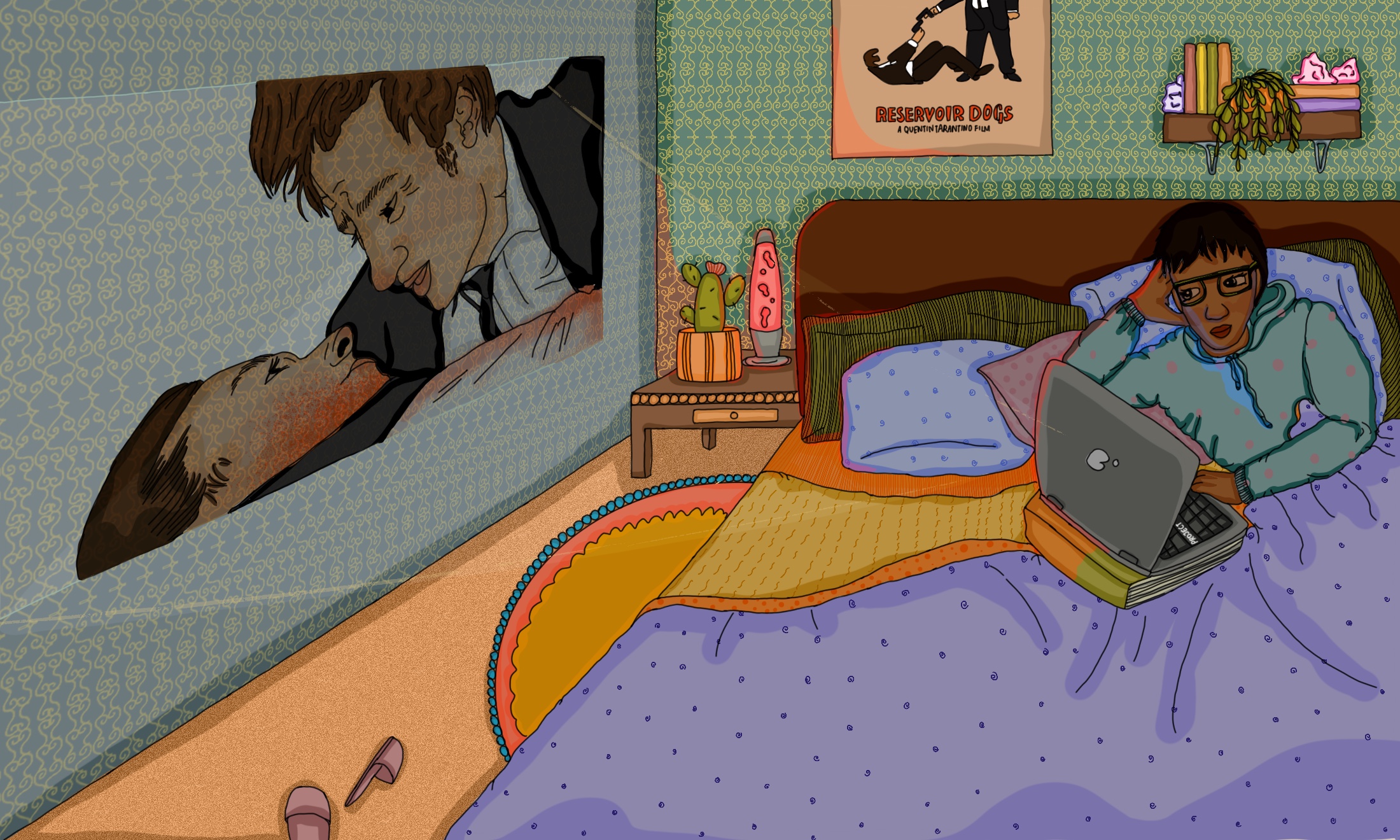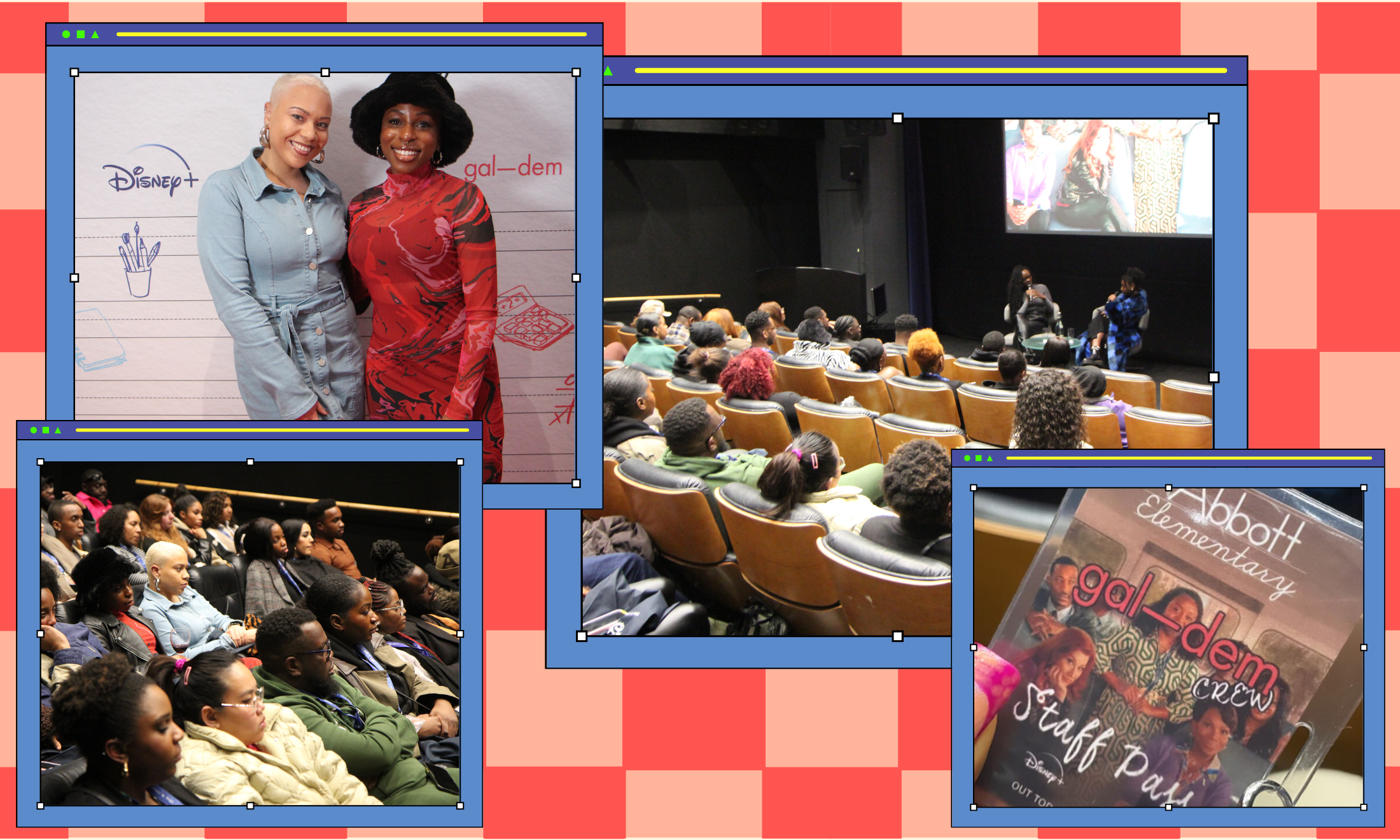
Parishma Patani
How ‘Film Bro’ movies helped me explore my gender identity
For many, 'Film Bro' films are full of violence, but are we missing their tender portrayals of masculinity?
Kaiya Shunyata and Editors
28 Sep 2021
Cinema has always been a friend of mine. As a shy child, it was a way to explore lives that weren’t my own and see parts of myself on screen. As I became involved with Film Twitter and then a writer, I realised there was a genre of films I’ve always been drawn to. These films, declared as ‘Film Bro’ films have helped me explore my gender identity in the most unexpected way.
Urban Dictionary describes a ‘Film Bro’ as someone who “views themself as a huge film nerd, while having mostly surface level knowledge of movies”. This term has slightly changed online in recent years and is now used to simply describe straight cis men who claim that popular movies such as Fight Club are underrated. Not only that, but Film Bros tend to like explicitly violent films, and idolise characters such as The Joker. Recently, in discovering many of these films for myself, I’ve noticed that many of them aren’t good. However, the way straight cis men tend to interpret them seems to be all wrong.
And so yes, in the hands of certain people, the films can be red flags. Straight cis men tend to see films directed by men as be-all and end-all cinema, and even tend to weaponise them against people who don’t like them. But, in the hands of others who are questioning their gender like me, they can mean something completely different.
“In the hands of certain people, the films can be red flags”
In 2020, alone in my room with nothing but the glow of my laptop keeping me company during the height of the pandemic, I realised something: I’m trans. I came out as nonbinary back in 2015 to my immediate friends, and since then, have kept that part of my identity a secret online. I would like to describe myself as “brave” and “proud,” but the truth is I am not. My identity has been something I’ve always kept to myself, and when I decided to come out online and to my immediate family earlier this year, it wasn’t because I was being brave, but because I felt obligated to.
I was known on Twitter for a few years as @fiImlesbian and identified as a nonbinary lesbian for most of my adult life. It wasn’t until I watched a designated “Film Bro” film that I started to clue into the fact that I may not be one. The first to spark this realisation was Quentin Tarantino’s Reservoir Dogs – a film focusing on five men who, when a heist goes wrong, are determined to find out which member of the group sold them out. There’s a relationship at the center of the film between Mr Orange and Mr White, two men who meet during the heist that goes awry. Their relationship is raw and angry and in your face, and is something that I found myself connecting to. What enthrals me about these films is the air of obsession and love that is captured between the central male characters. In Reservoir Dogs, Mr Orange and Mr White have only known each other for a few weeks, and despite that small amount of time, Mr White is willing to kill his friends for Mr Orange. While studying the film, there’s no doubt in my mind – and in my reading of the film – that Mr White was in love with Mr Orange. It’s a love that comes fast and one filled with delirium, and one that I connected with.
“On a deeper level, the films view masculinity and love in a way that I found even some queer cinema doesn’t explore”
The reason why the relationships between men in these films are so interlinked with gender is because they are some of the most tender portraits of masculinity. Like most things, masculinity and the explorations of it do not fall in a straight line. Watching men like Harvey Keitel on screen has always been enamouring, but with his role as Mr. White in Reservoir Dogs, he is able to become an emotional person drawn to love. He’s not some stoic macho-man, but a complicated being struck by his infatuations with another man. The way he walks with such confidence is one I yearn to emulate, and watching his big hands cradle Mr. Orange’s face makes me want to fall in love. It’s a collision of all things masculine and emotional, and one that encapsulates how I view myself as a trans person.
Films like The Social Network and Once Upon a Time in Hollywood aren’t just about the friendships between two men either. On a deeper level, the films view masculinity and love in a way that I found even some queer cinema doesn’t explore. Rick and Cliff in Tarantino’s Once Upon a Time in Hollywood aren’t just two dudes having a midlife crisis, they’re two men so attached to each other that a life apart is unimaginable. With both of these films, the opposing male characters display an innate desire for each other (whether it be for the other to notice them, or to maintain their relationship). This desire is so powerful that it causes their masculinity to waver and explode, causing them to become irate and isolated. It’s as if these unspoken desires weigh so heavy on their minds that the only way they can express themselves is through anger.
“While the masculinity of these characters is a prison in many ways to them, for me, masculinity is a gateway to a life of freedom and passion”
I’ve seen memes online about the ‘nonbinary lesbian to trans man pipeline’ before and laughed, but after seeing Reservoir Dogs, I realised the ‘joke’ may have been my truth. While lesbianism has always made sense to me as an identifier before Reservoir Dogs, I never truly connected with it as a sexuality. As a woman or nonbinary person, liking men did not make sense to me. But as I began watching films like Fight Club and After Hours, I realised that I am attracted to men, but in a way that only made sense to me.
Lesbian cinema never captivated me like these films. The soft touches in The Handmaiden and Portrait of a Lady on Fire made me self-conscious: why wasn’t I able to relate to the love between these characters if this is who I was? Slowly, opening myself up to the idea that I was indeed not a lesbian and maybe not even a woman, I was able to understand why. It’s because I’m neither of those things. The heady and aggressive love between the men in films like Mean Streets is a direct reflection of the relationships I’ve acquired over the years.
It’s a shame that instead of seeing Film Bro films as portrayals and meditations on masculinity, most viewers see them as nothing but the spray of bullets and blood. While the masculinity of these characters is a prison in many ways to them, for me, masculinity is a gateway to a life of freedom and passion. Frankly, it’s a life that would not be possible without these films.









